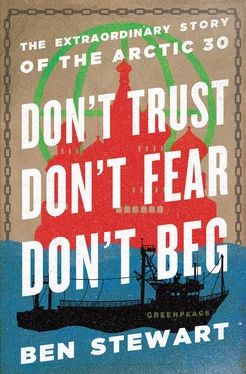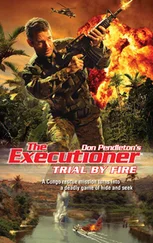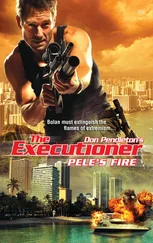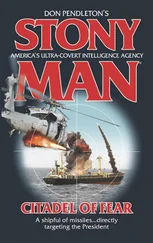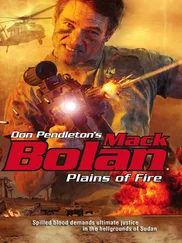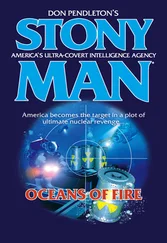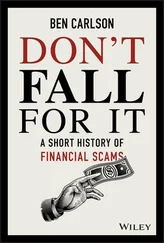His efforts are part of a huge behind-the-scenes intelligence operation dedicated to understanding the Kremlin’s thinking. The set-up is run by Sauven, Mads Christensen, Kumi Naidoo and the campaign’s political strategist Neil Hamilton. As head of the global campaign to free the Arctic 30, Christensen is the repository of all the hints, rumours and tip-offs that are coming in from across the world, from meetings with diplomats, foreign ministers, business figures, Russian liberals and even Kremlin officials. Sometimes the best indication of how the campaign is going is a simple glance at the video link to Copenhagen in the early evening to see if Christensen has cracked open a Carlsberg at his desk.
Mads Christensen is the epitome of concentrated Scandinavian cool. When he speaks to his core team, his voice is determined but composed. He’s one of those leaders whose demeanour is as important as the decisions he or she makes. Something about him inspires trust and loyalty. It’s not just what he says, it’s how he says it. He projects calm at all times. Even when the campaign is on the back foot, when they are mired in crisis, he’ll be found leaning back in his chair chewing gum with his feet up on the table at the Copenhagen hub, hands behind his head with his eyes closed, pondering how to outmanoeuvre the Kremlin. He wears colourful tank tops that would look ridiculous on most men, but somehow not on him. He has an intuitive understanding of the global media, a gift for strategic legal analysis and no tolerance for bullshit. A rumour circulates that he’s not actually a human being. Instead, it is said, he’s a computer algorithm, and Mads is in fact M.A.D.S. – Massive Automated Decision System.
He’s running multiple sources across the globe. When contacts tell him who they’re talking to, he can often find their names in diagrams of the Kremlin power structure. But the situation is confusing. Some Russians are telling him not to worry, to just sit tight, that this will all be resolved in a few weeks. But then he has other sources telling him this is going to get nasty, high-level people saying it’s going to be years in jail. Christensen is told Putin is furious with Greenpeace and wants to teach the organisation a lesson.
Mads Christensen doesn’t know who to trust – the people saying it will be over soon, or the sources predicting years in jail. Everyone wants to be part of a global story and he thinks some of his sources are mixing solid information with their own opinions. And he suspects he’s being fed false intelligence by the FSB.
‘There’s an information war raging for sure,’ he tells a core-team meeting. ‘Who to trust and who not to trust, that is the question. It’s making this situation very difficult to analyse.’
For the campaign’s senior staff, this feels like playing a game of geopolitical chess. On one side of the board is a ragged band of amateur diplomats. Facing them are Putin and his security chiefs. The UK political director Ruth Davis wonders who might teach Greenpeace the rules of this global game, and she emails Martin Sixsmith.
Sixsmith is a familiar face, for years he was the BBC’s Moscow correspondent, the guy who stood in Red Square wearing a thick coat and clutching a microphone as the Soviet Union collapsed. Since returning to London he’s written a series of well-received books about Russia, including Putin’s Oil – an investigation into the fight to control Russia’s energy industry.
Ruth Davis is forty-six years old with wavy brown hair. She likes to holiday in the Arctic to see the northern lights, but since the ship was seized she’s lived in the Room of Doom with a telephone plugged to her ear as she works her contacts in European governments. She doesn’t expect Sixsmith to reply to her email. He’s a busy man, the author of the bestselling book The Lost Child of Philomena Lee. It’s been turned into a movie starring Steve Coogan and Dame Judi Dench and the film has just opened in London. It will later be nominated for four Oscars, including Best Picture. So the political director is astounded when Sixsmith writes back saying he has half an hour for her.
‘Energy is what Russia’s all about,’ says Sixsmith, sipping on a cup of Darjeeling tea in a hotel bar overlooking central London. ‘Without energy, Russia is nothing. Without oil and gas their economy would be in a dreadful mess, and the regime can only survive as long as the economy is doing well. For the years after Putin became president, things were good – economically I mean – and he was incredibly popular. Then they had a recession and you had tens of thousands, hundreds of thousands, possibly millions of people out on the streets demonstrating against Putin. He knows his own personal fortunes are linked to the economy, and the economy is oil and gas. He’s put all his eggs in one basket and if he drops that basket then he’s in big trouble. So when you guys come along and start protesting against the environmental effects of his energy strategy, then he’s going to be extremely jittery. That’s why you guys are in so much trouble.’
Ruth Davis looks up from her notebook. ‘How much trouble?’
Sixsmith bites a chunk from a shortbread biscuit, spilling crumbs down his shirt.
‘Big trouble. You have to understand how important the Arctic has become to Putin. Up until now Russia’s relied on Siberia and this endless supply of oil and gas, but that’s been extensively exploited, they’re sucking it dry, so like the rest of the world he’s looking for new oil, and the Arctic is on his doorstep. Russia was very quick to lay a territorial claim, they said their continental shelf extends right up to the North Pole so the Arctic is theirs. Remember when they planted that flag on the seabed? That’s what that was all about. Then your friends go up there and say the Arctic’s not Russia’s, that the Arctic belongs to everyone, and of course Putin says, “No way.” And now your friends are in jail.’
Ruth Davis lays out the strategy, how Greenpeace is giving Putin a wide turning circle, a chance to back down. Is it sensible? Are they on the right track? Sixsmith thinks for a moment then nods.
‘Russia is a sort of half-European and half-Asiatic country. And in terms of attitude they’re Asiatic, so not losing face is a really big thing. And the more you back Putin into a corner the more he’ll come out kicking and fighting. You have to give understanding to the dilemma he’s in, you have to give him room to make concessions, the opportunity to back down without losing face.’
‘And who’s calling the shots here?’ Davis asks. ‘We assume it’s Putin driving events. He’s making the big calls about where the case goes, right?’
‘The move to lock them up will certainly have been dictated by the Kremlin. And in the Kremlin’s terms, it’s actually the right reaction, because the regime is in trouble. There were demonstrations in the streets last year after Putin’s latest inauguration, protests in St Petersburg and Moscow. And what do you do when your regime is in trouble? You look for someone to blame. Traditionally it’s always been the Americans, it’s been the CIA. I bet they’re saying on TV that you guys are funded by the CIA.’
‘Oh yes.’
‘Yeah yeah, and they’ll be saying the CIA is funding you in order to embarrass Russia, because the Americans will lose no opportunity to do down the great Russian people. It’s as if the Cold War never ended. Now of course we think that’s ridiculous, and I suspect you don’t get funding from the CIA—’
‘If I told you I’d have to—’
‘—you’d have to kill me, sure. But in Russian terms it’s the right strategy to adopt, because if you demonise somebody who’s challenged your regime—’
Читать дальше
